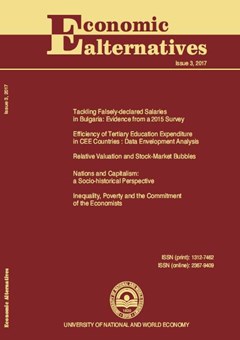Nations And Capitalism: A Socio-Historical Perspective
Authors: Jerome Maucourant, Michael Rafferty, Bruno Tinel
Abstract
This paper is about the role of the State in contemporary capitalism and its connection to the nation in analysing the dynamics of capital. At the turn of the twenty-first Century, the illusions engendered by the second globalisation have persuaded part of the radical left that the notion of Nation had to be given up both in terms of heuristics and of progressive agendas. From now on, it seemed, the concept of nation would be increasingly irrelevant and dangerous. Parallel to this shift, so called "new" technologies of information and communication as well as the knowledgebased economy have made the Marxian concept of capital outdated. In actual fact, this view overlooks the ambivalent reality of Nation, and the socially embedded nature of technology. The danger of this total critique of the nation is that it may help to contribute to the dissolution of People themselves of which Nations are merely – imperfect but existing – political organisations. Based on a periodization of the history of capitalism, and informed by the contribution of "political Marxism", this paper shows that the current globalisation can be characterised as a transnationalisation. On the basis of this analysis, the paper also seeks to conceptualize and elaborate a new internationalism coherently.

